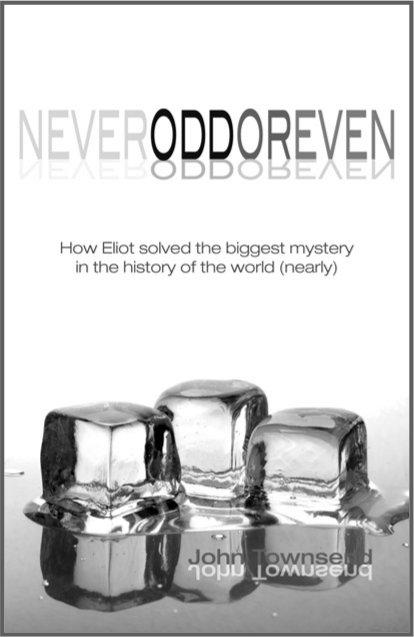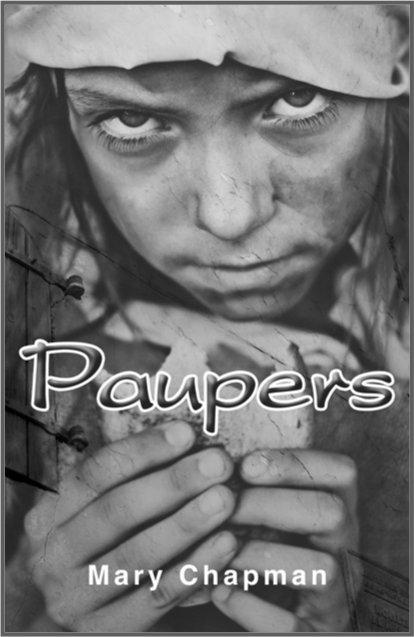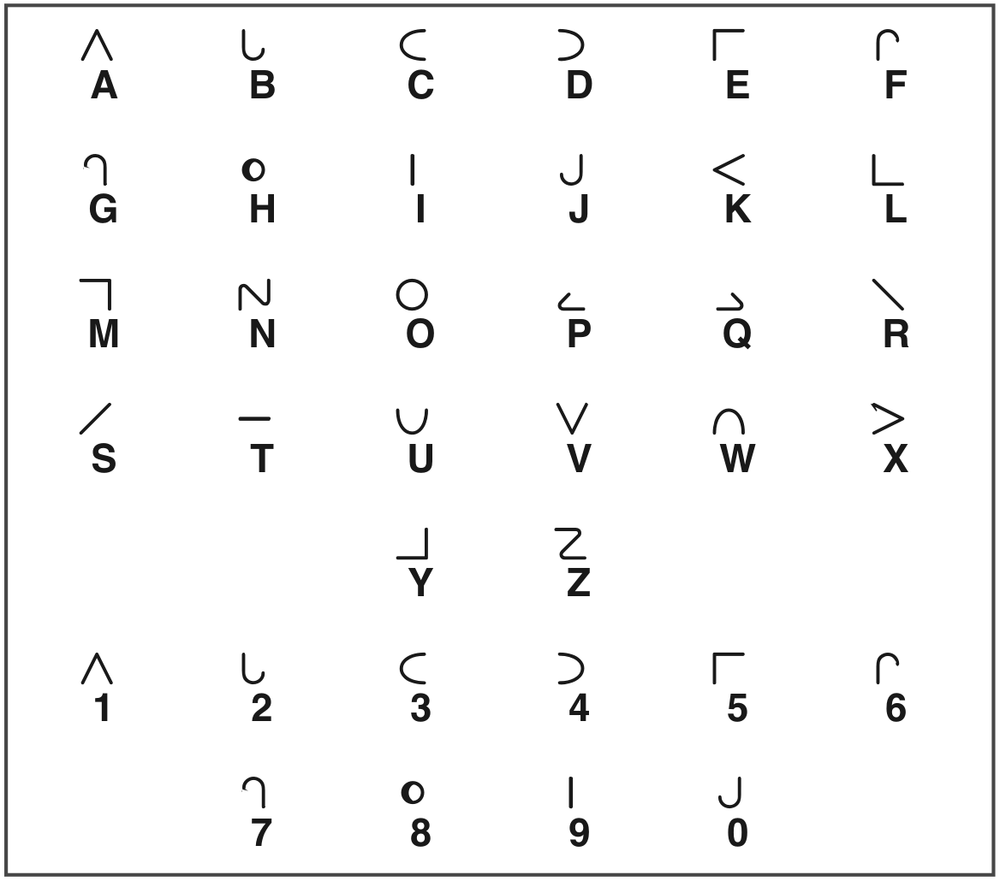The Secret Message (5 page)
Read The Secret Message Online
Authors: John Townsend

In World War 1 (1914 – 1918) over 300 British and Commonwealth soldiers were accused of cowardice, desertion or even falling asleep at their posts – and were executed by their own firing squads. Some were only in their teens.
In 2006, the British Parliament finally granted pardons to WW1 executed soldiers.
‘I hope that pardoning these men will finally remove the stigma with which their families have lived for years.’
(Des Browne, the UK Defence Secretary in 2006.)
Many of their names did not appear on official war memorials.
The
Shot at Dawn
campaign claimed that executed soldiers were blameless because severe trauma and shock, not cowardice, had affected them so badly. Rushed court martial trials often used doubtful evidence and gave no representation for the distressed accused.
Opposite:
The Shot at Dawn memorial to executed soldiers at the National Memorial Arboretum, Lichfield in the UK.
The memorial is based on 17-year-old Private Herbert Burden, who lied about his age to enlist and was shot by firing squad at Ypres in 1915.

As a child, I stood with my grandad and other World War One veterans on a cold November morning at the cenotaph for the Festival of Remembrance. He remained very still throughout and, as I looked up into his unseeing eyes, I could tell they hid such powerful memories and emotions. Maybe he was also thinking of his baby sister killed by a cricket ball or of Maud, his older
sister cruelly disabled by polio ⦠as a brass band played
âO God our help in ages past, our hope for years to come,
Our shelter from the stormy blast and our eternal home.'
This book is dedicated to Sam, Tom, Ben & Esther â whose great great grandfather (my grandad) served as a young soldier in World War One. Many years later, with trusty guide dog at his side, he was an active fundraiser for Guide Dogs ⦠and a dab hand with his typewriter.
Scientists now understand a lot about how the characteristics of parents (such as having blond hair or being tall) can be inherited by their children. This happens as a result of
genes
being passed on from one generation to the next. Genes are found in the bodies of nearly all living things.
Genes, and genetics, can probably explain how Sam and Freddy look very similar – to the point
of looking like twins (or, in this case, Sam, Freddy and Giles looking like triplets across time). It can also probably explain how Sam was such a good artist (like Freddy).
What genetics can’t explain is how Sam’s drawings looked exactly like Freddy’s, even though they were drawn a hundred years apart. Genes can make you good at drawing – but they won’t make you draw exactly the same pictures as your grandad.
Around 1800 a French scientist called
Jean-Baptiste
Pierre Antoine de Monet, Chevalier de Lamarck
(‘Lamarck’ for short!) suggested that children inherited characteristics that their parents acquired during their (the parents’) lifetime. So if your father worked out in the gym a lot and developed big muscles, you would ‘inherit’ big muscles too.
At the time that Lamarck was writing, nobody knew about genes, so this sounded as if it might
be true. Now most scientists think that it isn’t the case.
Is there anything else in science that might explain the fact that Sam drew exactly the same pictures as Freddy?
How and what we inherit from our ancestors (including their experiences and memories) is a fascinating area that scientists continue to explore. The subject of
epigenetics
is likely to lead biologists to many more discoveries about what parents pass on to their children and grandchildren.
Some scientists talk about
memes
. These are like genes – they are passed on from one generation to the next. But in fact memes are nothing more than ideas, or bits of ideas, that live in our minds – like a part of a nursery rhyme or a popular tune, or our memory of the smell of
burnt toast. Babies are born and people die – but these memes seem to carry on forever, jumping from one person’s mind to another.
Perhaps one meme that carries on with many of us is our collective memory of the horrors of the first world war.
The past is part of us all.
Reading and writing secret messages was once impossible for blind people. In the early 1800s, Louis Braille of France invented a system for reading raised dots on a page by using the fingertips. Reading and writing using Braille has been used ever since by people unable to see a printed page.
Blinded soldiers returning from war were often
unable to learn or use Braille, particularly if their hands were damaged. Reading Braille needs very sensitive fingers.
Other ways of reading using touch were tried. Ordinary letters of the alphabet raised on the page need to be very large to be felt properly, which causes slow reading speeds and very bulky books.
In the 1840s, a blind Englishman called Dr William Moon invented another system of raised shapes. The letters are made up of lines and curves, similar to the printed alphabet. These shapes are rotated or reflected to create the 26 letters of the alphabet, with dots added for punctuation marks and numbers. The system is now just called
Moon
, after its inventor.
As the characters are fairly large and many resemble the normal printed alphabet, Moon has been particularly suitable for those who lose their sight later in life, or for people who may have a less keen sense of touch.
The UK-based charity RNIB (Royal National Institute of Blind People) has produced many materials written in Moon.
In case you struggled to decipher the message written in Moon font in the story, or if you want to check whether you worked it all out, the letter to Freddy said this:
Dear Freddy
I know you’ll never read this and I don’t suppose anyone ever will. I just need to confess three more things.
1. I loved your daughter as my own. Dear Alice died yesterday, aged 63. I always meant to tell her all about you but I never did. Forgive me. Her lovely nature was just like
yours. She was my last link to you and I feel devastated. She never knew about her real father. I’m sorry.
As for your beloved Daisy, I could never tell her either. I nursed her in her final years but it seemed best to save her from the truth. I hope you understand.
2. It all seems silly now but I felt bad about it for years. Do you remember the pocket watch I gave you? I’m ashamed to say I stole it. It belonged to the Squire and he sacked one of the servants for taking it. You thought I’d spent a fortune on you. I’m sorry.
3. I didn’t tell you the whole truth. Unlike you, I had a terrible temper. Now I know I am dying, I can admit I did far more than push the sergeant into the mud that night. I thumped him hard in the face. I shouldn’t
have done it. I was wrong. You paid the price for my stupidity. What a price. I am so sorry.
Your ever loving brother,
Giles
Greater love hath no man than this; that he lay down his life for his brother.
John 15:13

The Secret Message
by John Townsend
Published by Ransom Publishing Ltd.
Radley House, 8 St. Cross Road, Winchester, Hampshire SO23 9HX, UK
www.ransom.co.uk
ISBN 978 178127 277 0
First published in 2013
Copyright © 2013 Ransom Publishing Ltd.
Text copyright © 2013 John Townsend
Cover photographs copyright © mikedabell (poppies), duncan1890 (soldier), mettus (old shells), wingmar (back cover); text photographs copyright © mikedabell, wingmar, tankbmb, John Townsend. Illustration page 115 by John Townsend.
A CIP catalogue record of this book is available from the British Library.
All rights reserved. This ebook is copyright material and must not be copied, reproduced, transferred, distributed, leased, licensed or publicly performed or used in any way except as specifically permitted in writing by the publishers, as allowed under the terms and conditions under which it was purchased or as strictly permitted by applicable copyright law. Any unauthorized distribution or use of this text may be a direct infringement of the author’s and publisher’s rights, and those responsible may be liable in law accordingly.
The right of John Townsend to be identified as the author of this Work has been asserted by him in accordance with sections 77 and 78 of the Copyright, Design and Patents Act 1988.
A play ‘
Beyond The Fields
’ is based on this book. Anyone interested in performing this should contact the author via
www.johntownsend.co.uk
.



by John Townsend
‘I’m at that special age: 12. It’s one of my favourite numbers. 12 isn’t just the sum of 10 (the base of our whole amazing number system) and 2 (the only even prime number in the universe) but it’s the first number with 1, 2, 3 and 4 as factors. I reckon that’s so cool.’
Here’s a detective story with a difference. Eliot is twelve – and he thinks outside the box. He can’t help it. Numbers are his thing – and letters. So when ‘the biggest mystery that struck our school in the history of the world’ needs to be solved, Eliot is the one to call on.
But this time the solution doesn’t lie in the real world (or in the ‘real’ world of the story). Instead, the solution lies
inside the book
itself – only it’s locked away in a series of puzzles and palindromes.
Can you spot the hidden clues and find the culprit?


by Mary Chapman
‘What kind of place is this, where families are kept apart and a simple act of kindness is punished?’
Lydia Maddison and her family have nowhere to go. Their father has left them – and left them with nothing.
So begins their time at the workhouse, as paupers, in Victorian England.
It’s a hard way to live: families are separated, talking is forbidden and there is little food and plenty of hard work.
Lydia’s son Tom and his sister Rose need to summon all their strength and ingenuity to survive – especially as Rose has a baby of her own to look after.
What does the future hold for the Maddison family?


